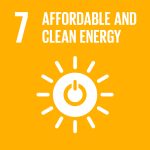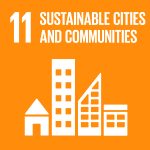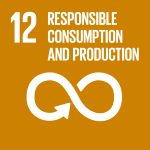Esta web utiliza cookies para que podamos ofrecerte la mejor experiencia de usuario posible. La información de las cookies se almacena en tu navegador y realiza funciones tales como reconocerte cuando vuelves a nuestra web o ayudar a nuestro equipo a comprender qué secciones de la web encuentras más interesantes y útiles.
Embedding SDGs content in existing courses
Description
Institution
Organizations/areas of the university involved
School of Engineering
Country
Malaysia
The Master of Advanced Engineering (MAE) in Energy and Sustainability program is designed to groom our next generation to become a change agent of sustainability so that they can make the ecosystem a better place to live in and to take care of the future. We also aim to make them conscious and responsible for the environment, economy and society while developing the materials and technology.
The SDGs reflect a better and more sustainable future for all and they address the global challenges that we face. Moreover, our specialisation MAE core units are directly related to the SDG framework. For example, Sustainable Energy Technologies (MEC5886) is related to SDG no. 7 (Affordable and clean energy) and SDG no. 11 (Sustainable cities and communities). Energy Efficiency and Sustainability Engineering (MEC5885) is linked to SDG no. 11 (Sustainable cities and communities) and SDG no. 12 (Responsible consumption and production).
In these units we focus on ways to increase energy efficiency and the use of renewable energy in residential, commercial and industrial sector through solving complex problems, design engineering solutions, and evaluate potential designs to identify optimal solutions. We also use research, investigations, critically appraise current developments and apply modern engineering tools such as software, computational techniques, machine and deep learning.
We use the SDG framework in our lectures and tutorials especially during the introductory lecture of the course to make students aware of the UNSDG and its targets. Basically, we try to implement the SDG throughout the course by focusing on increased use of energy efficiency and renewable energy. We also developed a group project solely focused on the development of energy efficiency and renewable energy technologies and policies. Moreover, students also perform a minor research project which is dedicated to bioenergy, renewable energy such as solar, biogas, etc. and energy efficiency projects. Some of these projects are also directly related to the solution of industrial real world problems.
Results and impact measured or expected
In the Energy Efficiency and Sustainability Engineering (MEC5885) unit, students were trained to conduct energy auditing of the campus buildings and air conditioner chiller plant. They provided a comprehensive report to the Facilities Management Department for appropriate action. Some of the measures taken were the scheduling and planning of lectures, monitoring the empty classrooms to avoid wastage of electricity, energy efficient lighting, etc.
In the Sustainable Energy Technologies (MEC5886) unit, students successfully designed the solar PV system for a campus building. Overall, the impact of hands-on and practical project work done by students was very helpful to the Facilities Management Department to conserve energy by reducing the electricity consumption. The impact was measured using the group project presentation, final project report as well as implementing and monitoring energy consumption of the campus.

Connection with the SDG framework
Our MAE specialisation core units are directly related to the SDG framework. For example, the Sustainable Energy Technologies (MEC5886) unit is related to SDG no. 7 (Affordable and clean energy) and SDG no. 11 (Sustainable cities and communities). The Energy Efficiency and Sustainability Engineering (MEC5885) unit is linked to SDG no. 11 (Sustainable cities and communities) and SDG no. 12 (Responsible consumption and production).
In these units we focus on ways to increase energy efficiency and the use of renewable energy in residential, commercial and industrial sectors through solving complex problems, designing engineering solutions, and evaluating potential designs to identify optimal solutions. We also use research, investigations, critically appraise current developments and apply modern engineering tools such as software, computational techniques, machine and deep learning.
Barriers and follow up
The main barrier encountered by us was to change the human behaviour. To overcome this, we use a variety of methods such as videos, practical examples, and field trips to industries practising sustainability, and so on. Another barrier is to develop the dedicated energy and sustainability lab to develop necessary skills for the next generation. However, at present we are negotiating with management to provide a space and funds to develop the lab. A strong point to note is that our university management is dedicated to supporting the SDGs. There are initiatives in collaboration with industrial partners to practice and implement the SDGs. Another hurdle is the communication of SDGs with the community and common public. This barrier is solved through workshops, seminars and public speaking. We also encourage students to arrange talks in local schools, community halls, markets or malls to raise awareness on SDGs.
Education 4 SDG funciona gracias a WordPress



